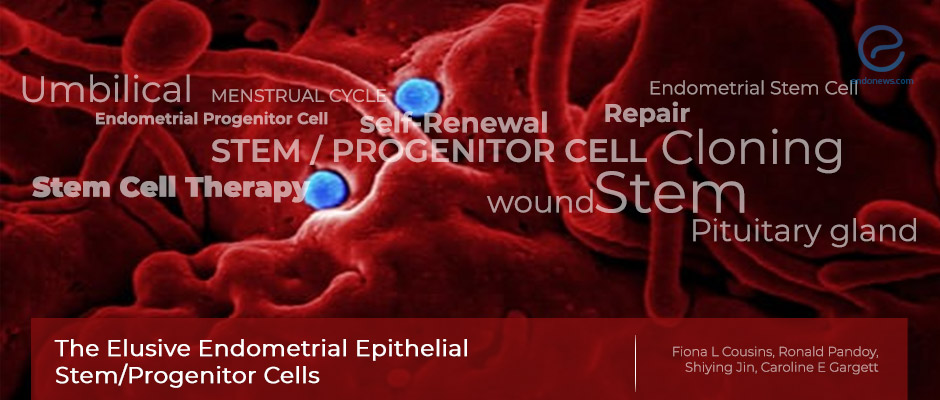Endometrial epithelial stem/progenitor cells have links to endometriosis with potential therapeutic research aspects
May 26, 2021
Endometrial epithelial stem/progenitor cells are in the frontiers of new research topics
Key Points
Highlights:
- Endometrial tissue is subject to many cycles of proliferation, differentiation, shedding, and regeneration over the reproductive life span.
- Endometrial epithelial stem/progenitor cells have important roles in homeostasis and endometrial lining regeneration of the uterus.
Importance:
- Knowledge about endometrial epithelial stem/progenitor cells is very important for endometriosis research and management.
What's done here:
- This is a comprehensive review of research findings of human and mouse endometrial epithelial stem/progenitor cells.
- It is highlighting important developments in identifying putative markers for these cells.
Key Results:
- The surface markers identified in human endometrial epithelial stem/progenitor cells permit their isolation and possible roles for the treatment of infertility or miscarriage caused by inadequate endometrial proliferation.
Limitations:
- Since the data obtained so far has not been applied to clinical medicine it is still a developing basic medical research area at the time being, albeit promising.
Lay Summary
Dr. Cousins with colleagues from Australia and the USA published their review paper on a not well-known subject, the epithelial stem/progenitor cells of the endometrium. This interesting paper is recently published in the scientific journal named "Frontiers in Cell and Developmental Biology".
Endometrial tissue has the property of going through continuous cycles of proliferation, differentiation, breakdown, shedding, and repair under the homeostatic control mechanisms of fluctuating circulating ovarian hormones. The endometrium of the mouse uterus consists of luminal epithelium and glandular epithelium, the simple columnar luminal epithelium lines the inner surface of the endometrium, the cuboidal glandular epithelium forms tubular gland structures surrounded by stroma, as in human endometria.
Stem/progenitor cells are few in number and in most postnatal tissues and organs, they maintaining cellular homeostasis of the tissue or the organ. These cells are delineated by functional assays assessing their key attributes since there are no universal stem/progenitor cell markers. An example for the stem/progenitor cell markers, CD34, is a hemopoietic stem cell in the bone marrow. By lineage tracing technique, the stem/progenitor cells can be traced. This technique has evolved since its appearance in the late nineteenth century, where dyes and fluorescent tracers were used.
Human endometrial epithelial stem/progenitor cells located in the basalis layer, thereby providing a source of cells to regenerate the endometrial functional layer is a widely supported hypothesis along with basalis-specific epithelial markers identified as nuclear AXIN2 in 2012. N-cadherin, also called CDH2, is a surface marker identified in basalis epithelium that enriches for stem/progenitor cell activity in functional assays.
New research data on endometrial epithelial stem/progenitor cells reveals importance in homeostasis and regeneration of the endometrium in both humans and mice, and also contributes new insight into endometrial disorders such as endometriosis with promising new therapeutic visions targeting epithelial stem/progenitor cells.
The promising aspect of the endometrial epithelial stem/progenitor cells is their use for regenerative medicine, and their regulatory mechanisms appear to be very important in endometriosis.
Research Source: https://pubmed.ncbi.nlm.nih.gov/33898428/
stem/progenitor cells endometrium adult stem cell progenitor cell epithelial cells stem cell niche lineage tracing

